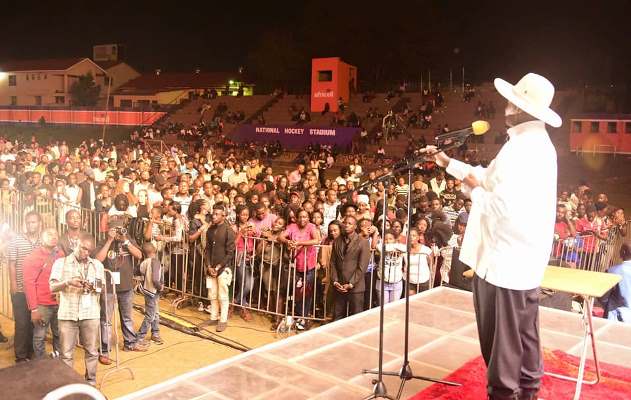By Peter Abaanabasazi
Cultural leaders from Bunyoro Kitara Kingdom, Alur Kingdom and Ker Kwaro Acholi have demanded government to share information regarding the oil and gas sector.
Cultural leaders, who recently launched of policy guideline aimed at protecting cultural rights of communities in the oil-rich Albertine Graben, accuse government of denying them information on oil and gas sector.
The guidelines that were formulated by the three cultural institutions in partnership with Cross Cultural Foundation of Uganda were launched on June21, 2017 at Hoima Resort Hotel in Hoima town.
The guidelines spell out what the cultural institutions want the oil companies to adhere to in their work as they operate in the Albertine Graben.
The three cultural institutions in their guidelines demand oil companies to adhere to cultural rights, respect of cultural, historical and sacred natural sites, respect cultural norms, values and practices of the people, contribute to sustainable livelihood options and safeguard land, environment and natural resources among others.
The guidelines were signed by Prime Ministers of the three institutions; Norman Lukumu of Bunyoro Kingdom, Ambrose Ola for Acholi kingdom and Vincent Ochaya of Alur.

The guidelines reflect the three cultural institution’s determination to play an active role in preserving cultural heritage, social conflicts and issues relating to managing customary land for development and peace among communities.
According to them, a number of oil companies have been licensed for oil exploration and production in the Albertine graben, an area with a rich cultural heritage, diverse communities, as well as an ecological zone with unique fauna and flora of cultural value, but there is no corroboration between government and cultural institution to ensure the conservation of such biodiversity.
Lukumu says cultural leaders situated in the Albertine Graben have a role of promoting culture and helping people to prosper through cultural values but this cannot be done when they don’t have information.
He adds that both the Kingdom and its subjects don’t want to be left speculating on oil production since they will be the ones to suffer the hazards that may arise from any eventualities resulting oil production.
He says that there is need for government and others players in the oil and gas sector to unveil relevant information to cultural institutions so that they prepare their subjects to engage to productive activities to benefit from the oil sector.
Meanwhile, premier Ola said the guidelines details how kingdoms will relate with oil in the region, adding that the kingdoms should not lose cultural identity at the hands of oil.
He noted that some cultural heritage have been tempered with by the ongoing oil activities because the custodians of culture were not involved at inception of oil exploration.
He called for participatory approach as the Country heads to production phase, adding that currently there is elaborated plans of how cultural institutions can work with government to ensure transparency and accountability in sector.
He noted that land is one of the identity of cultural institutions and their subjects, but to their surprise government continue to acquire land for the oil development without consulting cultural leaders and this has left many of their subjects displaced.
While responding to the queries, Clovis Bright Irumba, the Geochemist from the Ministry of Energy said that government has put up laws such as Public Finance Management Act, 2015 which stipulates how to manage, share oil loyalties and environmental protection.
He commended the cultural instructions for coming up with guidelines saying they can be taken up by government to ensure effective administration of the oil and gas industry. “These guidelines are good however they are not legally binding, so I advise you to work with your districts to turn these guidelines into by-laws,” he said.





